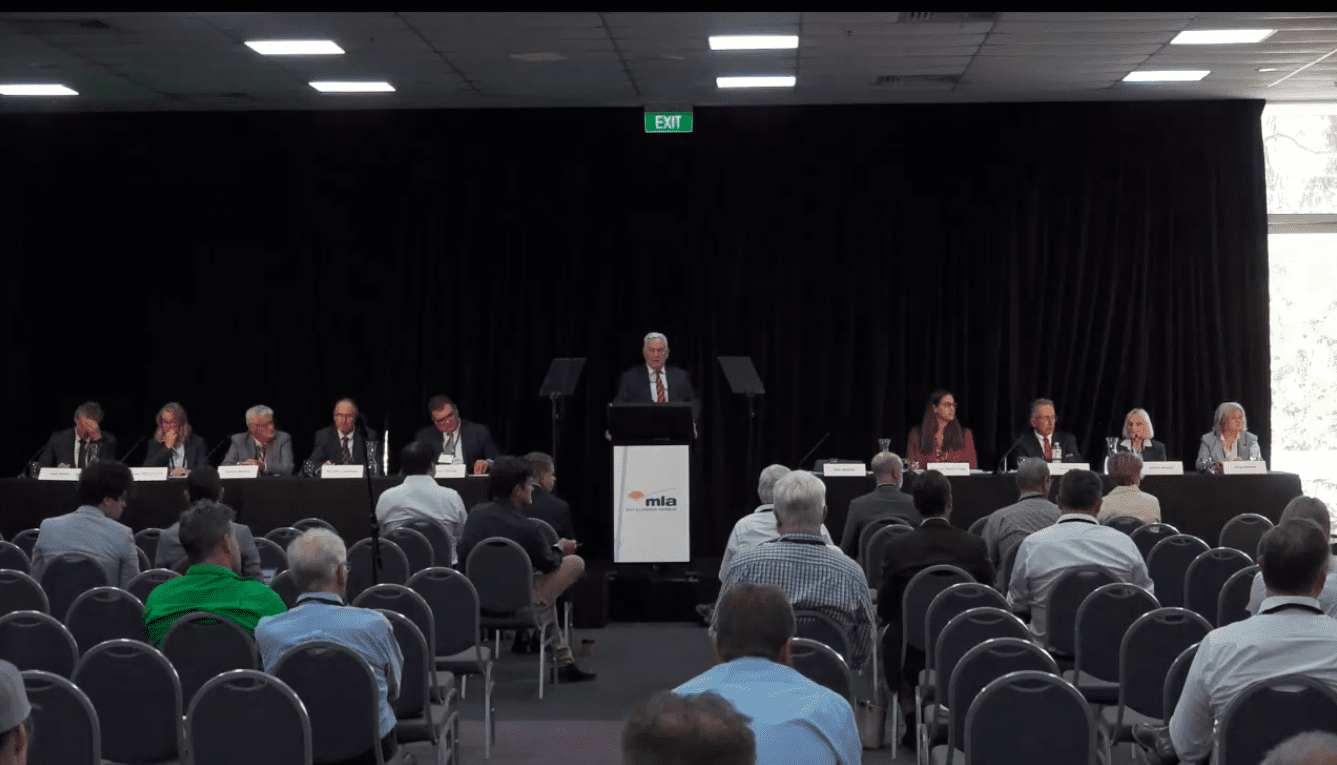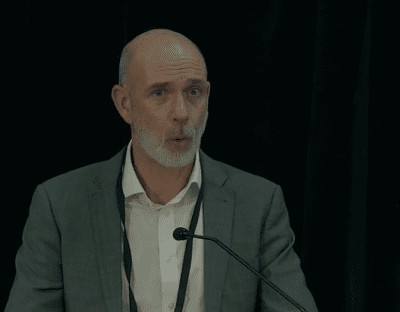THE reasons for substantial reductions in levy reserves held by MLA over the past three years and queries as to whether some MLA executive staff are becoming involved in policy or advocacy matters were among questions put to the MLA annual general meeting by members in Bendigo today.
Two questions from Cattle Australia deputy chair and AAM CEO Garry Edwards and East Gippsland producer Ken White during the AGM focused on the reasons for successive annual deficits reported by MLA in recent years.
Meat & Livestock Australia’s retained surplus has reduced from $110.1 million three years ago to $44.8 million in 2022-23.
MLA’s annual report said the deficit “largely reflected the deliberate drawdown on excess accumulated levy reserve balances” through the application of the MLA’s Levy Reserve Policy.
At today’s AGM two questions were asked seeking further clarity on reasons for the reductions and on what MLA’s Levy Reserve Policy states.
Ken White from Bairnsdale asked if there was concern at board level given the significant reduction in retained earnings that has occurred, and whether it has strategies to address that concern if it exists.
MLA in ‘a really strong financial position’
Chair Alan Beckett replied that the company is “in a really strong financial position”.
He noted that a lot of R&D contracts are long term contracts that do not hit the balance sheet until such time as certain gateways are processed.
“And so there is liability coming down the track that is not on the balance sheet, they are called capital commitments should we get to that stage.
“But there were years the company was making surpluses, and so what were really doing is starting to eat back into those surpluses to use the surpluses we have.
“The company is in a really strong financial position,” he said.
Cattle Australia Deputy Chair and AAM CEO Garry Edwards also asked about “the very material decline” in levy reserves held by MLA, which had seen 60pc of reserves disappear with five consecutive negative years.
He asked if the MLA Board had a strategy to remediate the situation, and if it felt there was a target the levy reserve should be taken back to.
Stepping forward to answer the question, MLA chief operating officer Andrew Ferguson said the question of levy reserves was something the company took exceptionally seriously.
Over the past five years the company had been operating well above required reserve levels, he said.
“So the way that we manage and budget on an annual basis is that we effectively look at our formal projections for levy income, we do that five years out, and we refresh that ever quarter, so it is always very current,” he said.
“And then when it gets time to look at our budget on an annual basis, we have a view five years out that in five years’ time as is required under that policy if we’re holding reserves over and above the level that we are stipulated to with our policy, that we have a plan in place to get the reserves down to that level.
“That is exactly what you do.”
He said the deficits that have been incurred over the last three years had been considerable, and that was largely because the levy income had been coming off.
“But those levy reserves that we have in place, we have actually been dipping into them, to ensure that we can maintain a consistent level of expenditure.
“So that allows us to plan. It allows us to look at the portfolio going forwards, and it allows us to keep it reasonably consistent.”
 He said MLA’s latest annual investment plan shows that levies in and levies out “are just about equalising this year”.
He said MLA’s latest annual investment plan shows that levies in and levies out “are just about equalising this year”.
“And what that means is while we’re not dipping into the reserves any further, you will actually start to see overall reserves in the business start to build up.”
Questioned further by Garry Edwards to explain specifically at what target the board had decided to hold levy reserves, Mr Ferguson said that while it was slightly different across the levy streams, the level was about $32 million.
“It is based on an average income over the last five years and projections forward,” Mr Ferguson said.
Advocacy and policy issue
Earlier in question time Mr Edwards also rose to ask the MLA Board about concerns that MLA executive staff were becoming involved in policy and advocacy matters, which were clearly outside MLA’s role.
“And I know there is often a fine line, but there has certainly been significant issues this year that have been raised as examples around COP, very recently it has been shared by Westpac with CA that there was engagement with Westpac with executives of MLA forming a policy decision around deforestation.
“I suspect that is highly problematic if you are potentially a Westpac customer who doesn’t get a refinance package because of that decision.
“I think it is very dangerous, this is an incredible organisation that we want to protect the integrity for, and I would be interested in your thoughts?”
MLA chair Allan Beckett thanked Mr Edwards for his question and said MLA was very careful not to engage in policy or advocacy matters.
“Look as members would realise as an RDC and one that receives levies from government, we are not allowed to participate in any political work or advocacy.
“We stand by our Statutory Funding Agreement and we are very, very careful that we don’t breach those responsibilities.
“I hear what you say, I am not aware of it, and I know our people are very conscious and it is something that we as a board and senior management are so careful about.
“As an industry council you would be very aware that we are very careful about the money that we are prepared to hand out to you, because we don’t want to breach the advocacy role, that is your role, ours is very much about marketing and research and development and we certainly don’t want to mix the two.”
Further reports from MLA’s AGM will appear on Beef Central tomorrow.


